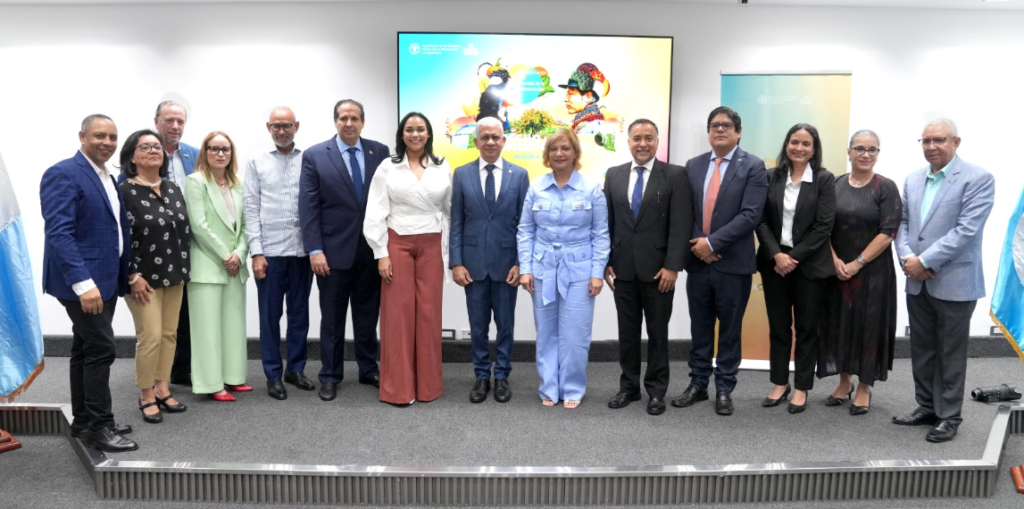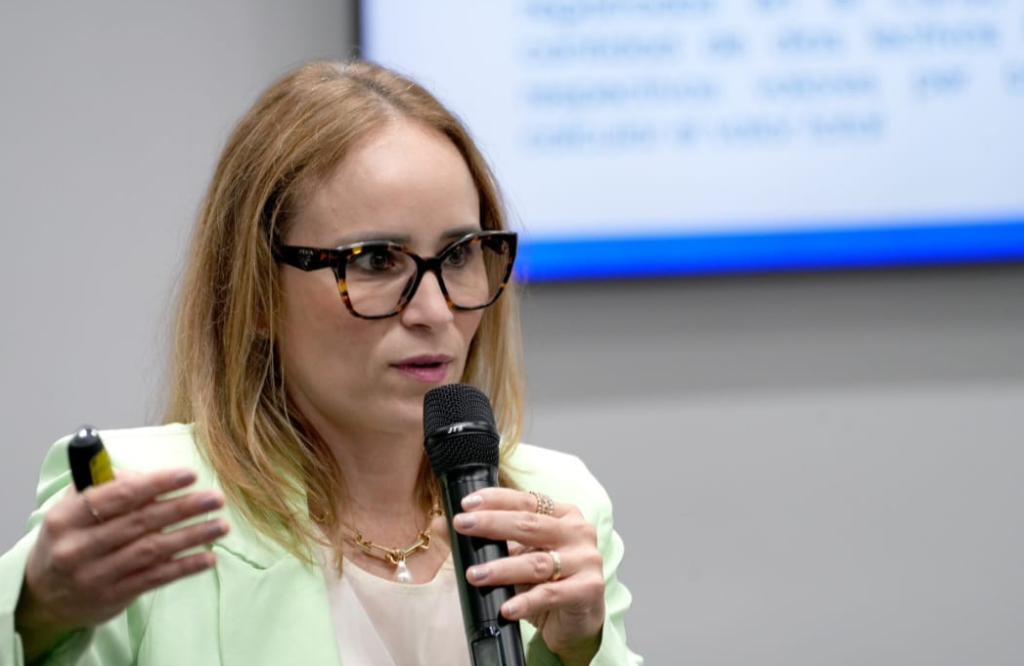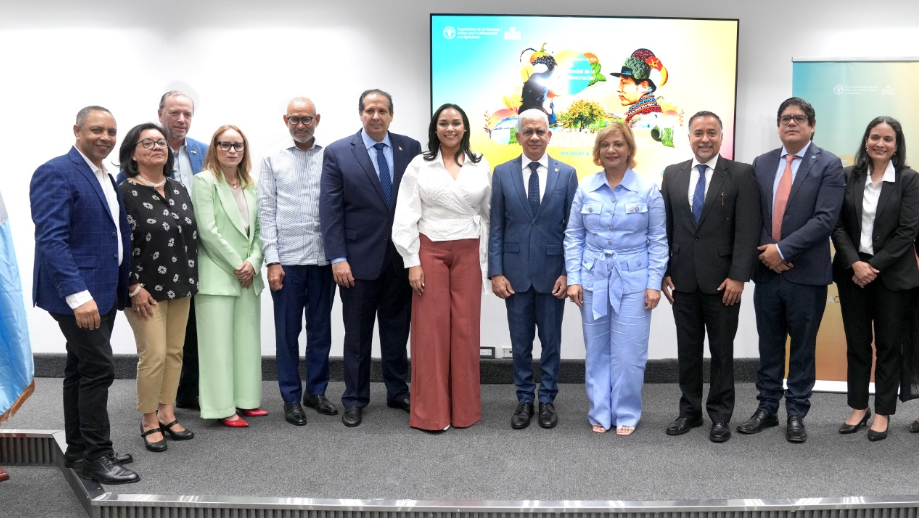The National Fund for Educational Development (FNDE) participated in the meeting that addressed the importance of the regulatory framework for school feeding programmes.
Santo Domingo, Dominican Republic, October 28, 2024 – The Brazil-FAO International Cooperation Programme in school feeding was represented by the National Fund for Educational Development (FNDE) at the 1st National Forum on School Feeding, held at the Chamber of Deputies of the Dominican Republic on October 24 and 25. The event was organized by the Parliamentary Front Against Hunger, the National Institute of Student Wellbeing (INABIE), and the Food and Agriculture Organization of the United Nations (FAO).
FNDE was represented by its president, Fernanda Pacobahyba, who presented a series of learnings obtained from the implementation of Brazil’s National School Feeding Programme (PNAE). During her presentation, Pacobahyba highlighted the importance of the school feeding law for the country, approved in 2009. According to her, this regulatory framework is a milestone for the institutionalization and strengthening of this public policy, emphasizing public procurement of at least 30% of products from family farming for school meals.

“This movement of dialogue occurring in the Dominican Republic, with various actors and managers working for the country’s food security, shows that the moment has come for the Dominican school feeding law to be consolidated,” she said. Pacobahyba emphasized the need for inter-institutional dialogue for the effective implementation of school feeding, the active presence of civil society, and the importance of viewing school feeding as support for ensuring the human right to adequate food in schools.
The FNDE president also mentioned the role of the Sustainable School Feeding Network (RAES) in strengthening school feeding in the region, as a good practice alongside the School Meals Coalition. She congratulated the countries that have already formally joined RAES, including the Dominican Republic.
The forum brought together legislators, experts, and representatives from various organizations to highlight the need for the law in improving health, academic performance, and equity among students in the country, as well as its positive impact on reducing hunger, malnutrition, and transforming food systems.

School feeding in the eradication of hunger
During the event, a video message from Brazil’s First Lady and school feeding ambassador, Janja Lula da Silva, was presented, emphasizing the positive impact of this public policy on eradicating hunger and improving the quality of life for students. At the event, the President of the Senate, Ricardo de los Santos, committed to prioritizing the issue and working toward the approval of the bill that will define school feeding as a state policy.
Víctor Castro, executive director of INABIE, highlighted the importance of the Dominican regulatory framework for continuing to improve student nutrition and adde: “We are very pleased that the Chamber of Deputies has approved this bill, but we will not rest until the same happens in the Senate.” The FAO representative in the Dominican Republic, Rodrigo Castañeda, emphasized that hunger is a political decision and needs to be prioritized by the authorities. “That is why this moment is so crucial, as we see a firm conviction in the Dominican Republic that it is possible to eradicate hunger,” he indicated.
Congresswoman Soraya Suárez, coordinator of the Parliamentary Front Against Hunger in the Dominican Republic, highlighted that the approval of the law is key to combating hunger and malnutrition. Another legislator, Congressman Jairo Flores, from Guatemala, shared his country’s experience in the process of approving the school feeding law, offering an inspiring example for the Dominican Republic towards implementing a similar regulatory framework. Flores also highlighted the support received from Brazil-FAO Cooperation and the importance of Brazil’s law as a reference for the region.







